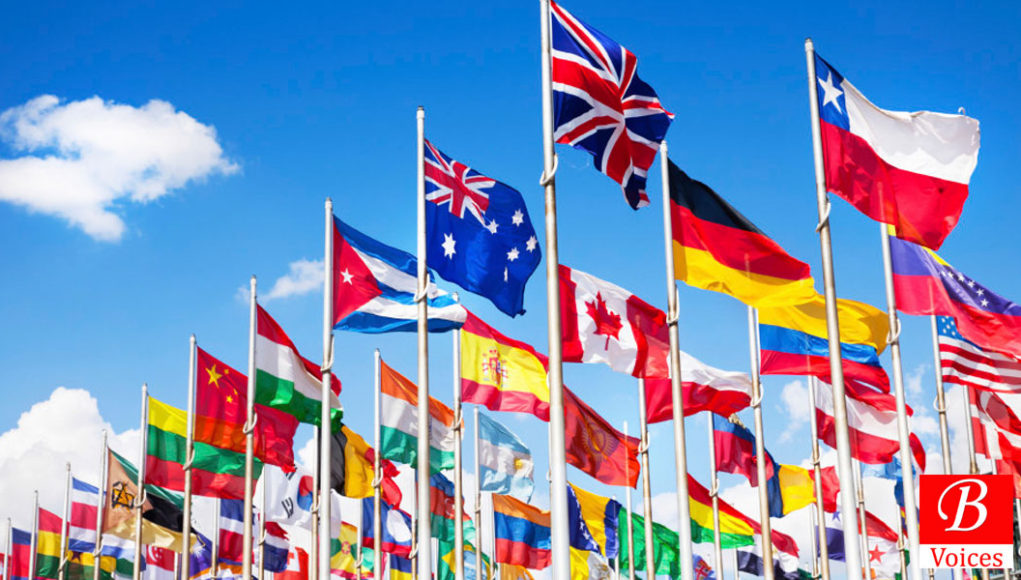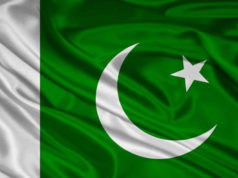Tahira Khan
Any state with war loves nationalist ideologies. It forgoes what human rights or basic freedom is and put the nation in some nationalist bubble. This bubble creates a glorious future and generates a fictional past to make people believe in patriotism. During the same period, sane voices are not allowed to criticize the role of the military in politics or war, and think any talk against the authoritarian structure is treasonous. We saw this euphoria in 1948, 1965, 1971, and 1999. Moreover, the nation shows such jubilation whenever the country is in crisis.
At first, the concept of nationalism craved to develop cohesion in a country. It referred to a feeling of pride in one’s homeland. Politically, the concept means independence or the right of self-determination for a country. In addition to that, the concept also deals with the questions of identity. Socially, the concept means people with the same ethnic, cultural, linguistic, or religious background showing affection towards each other because they believe in the same nationalistic ideology. Gradually, the state narrative got hold of the concept of nationalism and converted pride in one’s homeland and forefathers into pride in the military and fictional historical past. Thereupon, according to some scholars, nationalism can be both a curse or a boom depending on its usage.
Furthermore, the state diverts the nationalist sentiments because it is more like an acquisition. It is not some inborn quality. This concept is based on feelings and feelings are largely subjective. Nationalistic feelings become dangerous when a nation acquires a superiority complex. It is because national superiority is just a feeling or a belief but not a fact. No scientist has ever proved that certain culture, religion, ethnic affiliation, or historical legacy is better or superior as compared to others.
It is pertinent to note that every country on the map has undergone this change whenever it started a war. The United States developed a similar kind of narrative after 9/11. Similarly, Argentina adopted this approach when it invaded Falkland Island in 1982. In the same vein, Russia followed the line of a great nation or one can say a nation to save its Ukrainian brethren while waging a war against Ukraine. Chinese think the same way while talking about Taiwan.
In particular, one can easily detect the nationalistic jubilation in a state ready to go to war. If a neutral person inspects or criticizes this euphoria he/she may face backlash and even physical violence from the people. Moreover, state authorities send these sane people behind bars. In this context, it is easy to justify militant forces in uniform and authoritarian structures. In a nutshell, war states forbid criticism and erase consciousness, individually and collectively.
Similarly, war states give little space for logic, reasoning, or experience that defy national triumphalism. It even wants the nation to view the world through the logic of war or more precisely a zero-sum game. However, when the nation starts seeing the devastating impacts of States action, it questions and criticizes how war can destroy the political, economic, cultural, and religious aspects of any society. Unfortunately, the state even in the most critical phases of war decides to not abandon or even reflect upon its objectives and policies. Following that, the general masses also abandon the lessons of the past once the war is over. It starts following the mythic reality of war and appraises war memorials, fictional stories, movies, etc.
After the Vietnam War, America discredited nationalistic tendencies and encouraged critical voices. They accepted the reality that what America did was wrong and brutal. For a moment, people differentiated a lie from the truth. However, nationalistic triumphalism didn’t go that way. It resurrected during the Iraq war. Persian Gulf War proved to be a perfect way for the resurgence of American nationalism. America was more engulfed in the emergence of the ‘New World Order’ than realizing the drastic impacts of war. Besides, this ill-conceived ideology failed America in Southeast Asia as well.
Following that, it is not only the states’ narrative that goes in line with nationalism. Every society develops this kind of ideology or even becomes a part of nationalistic movements. This kind of mythic mindset lies hidden but resurfaces itself in times of crisis. In the case of India, Modi made use of Hinduvata ideology to raise his popularity, win elections, and erase every blunder his government committed. One of the pertinent tools of Modi’s government is the entertainment industry which promoted the soft image of his government. In the same vein, many Bollywood movies reflected Indian Nationalism and made fun of her neighbors. Furthermore, it is not only the Modi government that developed the Hindu nationalism. It existed long before in the form of textbooks, religious seminars, historical stories, or political speeches. In brief, these nationalistic myths help a state to undergo a crisis or even start a conflict because it knows the general masses will not question it.
It is unfortunate that people easily swallow the nationalistic pill. They take it and sometimes overdose it. This pill compels them to stop seeing what life is and indulges in negative activities. These activities may include collective amnesia where one wants to be glorified for his/her sacrifices while ignoring past lessons. Moreover, people don’t bother to question how this mindset can lead to their complete annihilation as well. They only desire to play the nationalistic drama of war and conflict. Regrettably, nationalistic euphoria is more like a theatre where people play fictional characters but bear real-time consequences.
The writer holds an M.Phil Degree in South Asian Studies from the University of Punjab. She can be reached on Twitter @TahiraGhilzai.
Click here to read previous articles of the writer.
Disclaimer: Views expressed in this article are those of the writer and Balochistan Voices does not necessarily agree with them.
Share your comments!








